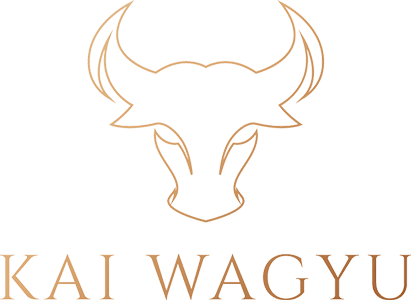How American Wagyu compares to Japanese Wagyu

When it comes to Wagyu beef, the comparison between American and Japanese varieties is often a topic of interest. Both meats have their own unique qualities, and understanding the differences can help you make an informed choice. Here’s a closer look at how American Wagyu compares to Japanese Wagyu.
-
Origin and Breeding:
- Japanese Wagyu, such as Kobe beef, comes from specific breeds of cattle. These including the renowned Tajima strain of Japanese Black cattle. These cattle are raised in Japan with strict regulations and a focus on preserving the breed’s genetic qualities. American Wagyu, on the other hand, refers to Wagyu cattle raised in the United States, often by crossbreeding Japanese Wagyu with other cattle breeds like Angus.
-
Marbling and Flavor:
- One of the distinguishing features of Wagyu beef is its high degree of marbling. The term marbling refers to the intramuscular fat within the meat. Japanese Wagyu is known for its exceptional marbling, with the fat distributing evenly throughout the meat, resulting in a melt-in-your-mouth texture and a buttery flavor. American Wagyu also exhibits marbling, though it may not reach the same level as Japanese Wagyu.
-
Grading System:
- The grading systems for American and Japanese Wagyu differ. In Japan, the Beef Marbling Score (BMS) is used to assess the quality of marbling on a scale of 1 to 12, with higher scores indicating a higher degree of marbling. In the United States, the USDA grading system is utilized, which assigns grades based on factors like marbling, tenderness, and color. American Wagyu can achieve high USDA grades like Prime or even higher.
-
Production Methods:
- Japanese Wagyu is often associated with traditional production methods, including strict regulations on feeding, breeding, and handling. The cattle are typically raised in smaller-scale operations and given special diets that may include elements like rice straw and beer. The states production methods can vary, but they often involve a combination of traditional and modern practices.
-
Availability and Price:
- Japanese Wagyu, particularly the highly sought-after Kobe beef, is known for its rarity and exclusivity. The limited supply and meticulous rearing contribute to its higher price point. American Wagyu offers a more accessible alternative, as it is more widely available and tends to be relatively more affordable.
It’s essential to note that both of these meats can offer exceptional dining experiences, but the specific characteristics and flavor profiles may vary. Ultimately, the choice between American and Japanese Wagyu depends on personal preferences, budget, and availability. Whether you’re indulging in the rich marbling of Japanese Wagyu or savoring the unique qualities of American Wagyu, both varieties showcase the remarkable qualities of this prized beef.
